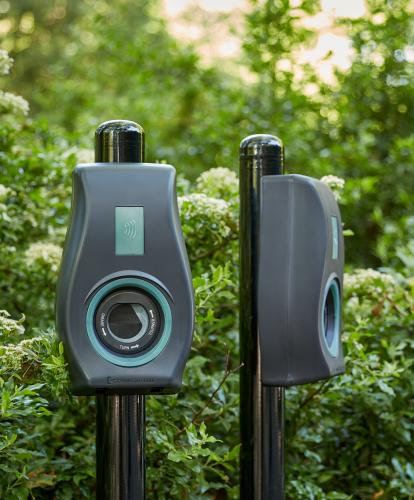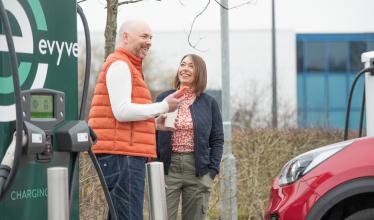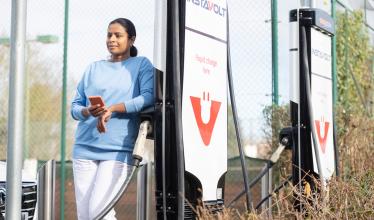Connected Kerb network costs

Cost per charge: 50p /kWh
Subscription: None
Connection charge: None
To discover how much it will cost to charge an EV from a Connected Kerb charge point, head to Zapmap’s Public Charging Calculator. This allows you to select any new or used plug-in vehicle, and tailor elements – such as electricity cost and charge required – for personalised results.
Zap-Pay

You can use Zap-Pay to pay for your charging sessions at any Connected Kerb charge points.
Zap-Pay is the simple way to pay for charging within the Zapmap app. Select the charger you'd like to use within the app and start your charging session at the press of a button.
You can check on the status of your charge at any time to see the estimated cost and the charge time remaining.
VAT receipts for all charging sessions are stored within the app, and can be accessed at any time to download to your device.
How to use the Connected Kerb network
Access to the Connected Kerb network is through Zap-Pay, the Connected Kerb app or with an RFID card.
Select the charge point via Zap-Pay to begin your charge, or if you prefer you can follow these simple steps:
- Download the Connected Kerb app.
- Scan the QR code on the charging point (or enter the ID manually).
- Hit 'Start charging'.
Finding Connected Kerb points on Zapmap
You can currently find Connected Kerb points on Zapmap by using the network filter. You can use this on the desktop and mobile apps to display only those points operated by Connected Kerb.
Charging types and speeds can be filtered too, showing only those points that are compatible with users’ cars.
Select 'Filters' -> 'Network' -> 'Connected Kerb' to view only Connected Kerb charge points.
Contact Details
Customer services: 0800 0291 696
Email: info@connectedkerb.com
Further contact information can be found on the Connected Kerb website.

A Connected Kerb bollard charge point for on-street parking
How does Connected Kerb compare to other networks in terms of pricing?
Zapmap monitors the prices of charging on the public network and reports on the prices charged by the top 10* rapid charging networks. The prices are updated on a monthly basis here: Rapid Charging: Top 10 Network Pricing
The price to charge an electric vehicle (EV) on the public charging network can vary substantively, and prices are increasing due to current issues in the energy market.
Updated on a monthly basis, the Zapmap Price Index shows the difference in prices paid depending on the type of charger and will also track how this is changing over time.
About Connected Kerb
Connected Kerb aims to deliver future-proof, cost-effective and sustainable EV charging solutions for the public sector, developers, fleets, workplaces and car parks to help accelerate the transition to EVs for all. Its unique solution combines power and data at the kerb to deliver user-friendly and reliable charging and provide the foundation for connected cities and communities.
The charging provider’s network currently consists of fast, on-street charging devices across the UK, which combine power and data at the kerbside to deliver convenient, reliable charging and fast fibre connection.
The charging network plans to install 190,000 public on-street EV chargers, worth up to £1.9bn, by 2030. The unprecedented investment aims to revolutionise access to EV charging for millions of drivers without off-street parking, and to support mass-market charging for workplaces and fleets.



